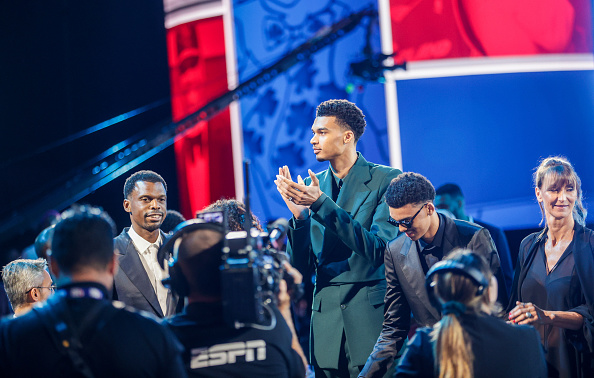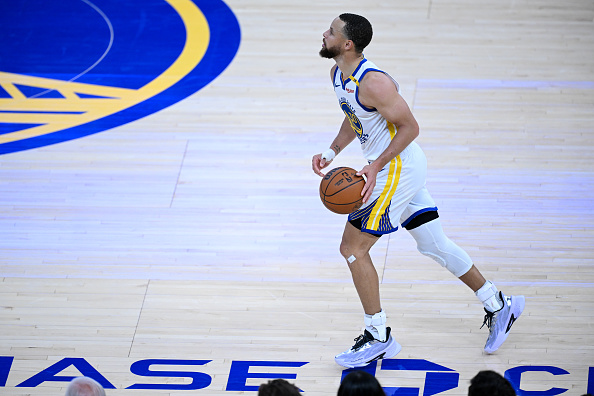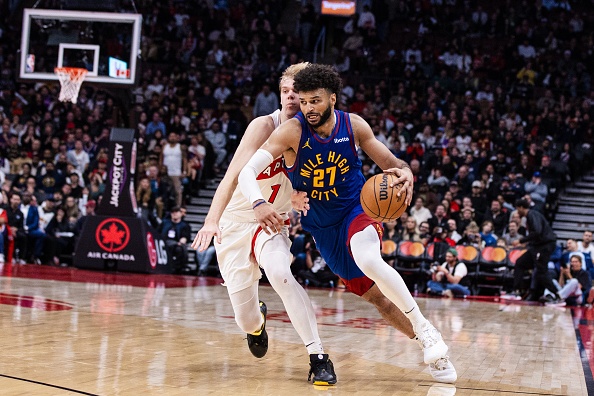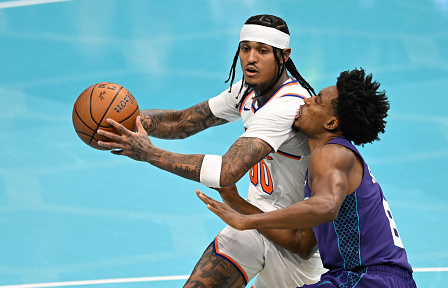The historically bad month of November suffered by both the Detroit Pistons and San Antonio Spurs has reminded us of the pitfalls of what can happen when teams try to tank.
The Pistons and Spurs are currently neck-and-neck for the worst records in the NBA, and some might say both could end up challenging the all-time worst NBA teams when this season is over.
PISTONS SPURS JANUARY 10TH 🫡🫡🫡 https://t.co/xU8QFjOaQL
— Kofie.bsky.social (@Kofie) November 28, 2023
But let’s stop for a second and ask: what is tanking and why is it bad?
What is Tanking? Historical Precedents to Consider
Envision for a moment that you are the general manager of an NBA team. You haven’t had major playoff successes in a while and you are in possession of at least a few star players whose contracts are leaving you in a bind. So what do you do? You try to move on from these players and start rebuilding.
Tanking, in effect, starts from this core concept: you want to start from scratch and build a new contender for the future.
One of the first known instances of tanking occurred in the 1983-84 NBA season. The Houston Rockets, having started that season 20-26, decided that the season was effectively lost. Knowing that the upcoming draft class would be loaded with unimaginable talents all up and down, they often decided to put their lesser-utilized players in the starting lineup to finish out the season. The direct result was Houston only winning nine of its remaining 36 games and thus securing the rights to draft Hakeem Olajuwon No. 1 overall in the legendary 1984 draft.
A more recent example of tanking would be “The Process,” which was initiated by the 76ers’ front office in the 2010s. A full decade had elapsed since the 76ers last made the NBA Finals. Seeing no better way through an Eastern Conference dominated by LeBron James, the 76ers initiated a seasons-long tank starting in 2013. For the next three seasons, the 76ers won a grand total of 47 games, including an embarrassingly bad 10-72 season in 2015-16.
But through the failures, the 76ers would slowly build the foundation of their current roster, one that has since been a frequent playoff contender headlined by 2022-23 MVP Joel Embiid.
Why Tanking is Bad
Despite the outlined examples of why tanking could easily be seen as a positive, not all is well when you consider the stigma that surrounds teams who tank and their fanbases. Sports fans inherently want to watch their team win above all else, but when their team doesn’t win and fans are told that their team intends to tank, the people do not want to support long-term tanking and rebuilding projects. The 76ers’ “Process” of 2013 through 2016 shows how fast a team’s attendance can fall when the team they support loses at a chronic rate. In the 2012-13 season, the 76ers’ home arena ranked 17th in NBA total attendance; within two seasons, their attendance fell to last in the league.
The Pistons officially lost every game in the month of November.
They're just the 13th team in NBA history to go winless in a month. The last team to do it were the 2015 76ers, in "The Process" era. pic.twitter.com/c2Xpq7cT0I
— SB Nation (@SBNation) December 1, 2023
Linked closely to fan opinions on tanking, potential free agents would also shy away from teams clearly not looking to win. When the Lakers suffered through seasons of 50-plus losses in Kobe Bryant’s final years with the team, several potential free agents stayed away despite the Lakers’ intention to make one last run before Bryant’s retirement.
It should be noted that, in 2018, as a direct result of the 76ers’ “Process,” the NBA leveled the odds for the teams with the three worst records in the lottery to 14 percent, then 12.5 percent and 10.5 percent for the teams with the fourth- and fifth-worst records, respectively. This fact ties into the current situation facing the Pistons and Spurs.
The Current Situation: Pistons and Spurs
In the 2022-23 NBA season, when the Detroit Pistons and San Antonio Spurs finished with the two worst records in the league, both were linked closely to the right to draft Victor Wembanyama. With their top pick odds at 14 percent, both stood on relatively even ground to win the rights for No. 1 overall.
Most expected that the Pistons and Spurs would stay in the top three picks, and one would land the coveted No. 1 selection and the rights to Wembanyama, who was viewed as the best NBA prospect since LeBron James. What happened? The Pistons landed the fifth overall pick, which turned into Ausar Thompson, and the Spurs drafted Wembanyama.
Yet, both are still seemingly stuck to the bottom. The Pistons, who have not won over 23 games in the last four seasons, have recently benched Thompson amid a 2-18 start. When a team like the Pistons reduces itself to the bare minimum and continues to show no improvement over multiple years, the fanbase becomes completely fed up with the lack of progress. Coach Monty Williams, who just two seasons ago coached the Western Conference champion Phoenix Suns, has found himself in an almost unwinnable situation just 20 games into the season.
The Spurs, once deemed a beacon of excellence in the sport, have fallen to shambles despite having drafted a potential all-time talent in Wembanyama. Gregg Popovich, a legendary coach who will be enshrined one day in the Basketball Hall of Fame, has similarly found himself in an untenable situation with a roster much like Detroit’s. This is the direct result of tanking to land young players and other cast-offs unable to win games.
In the end, the rumbles of frustration from these two fanbases and journalists will only continue while the practice of tanking will never cease to exist.
Pistons vs Spurs in a tank-off this year 🔥 pic.twitter.com/5jS95oQxjW
— rockRockedRock (@rocked_rock) December 2, 2023
Main Image Credit:







